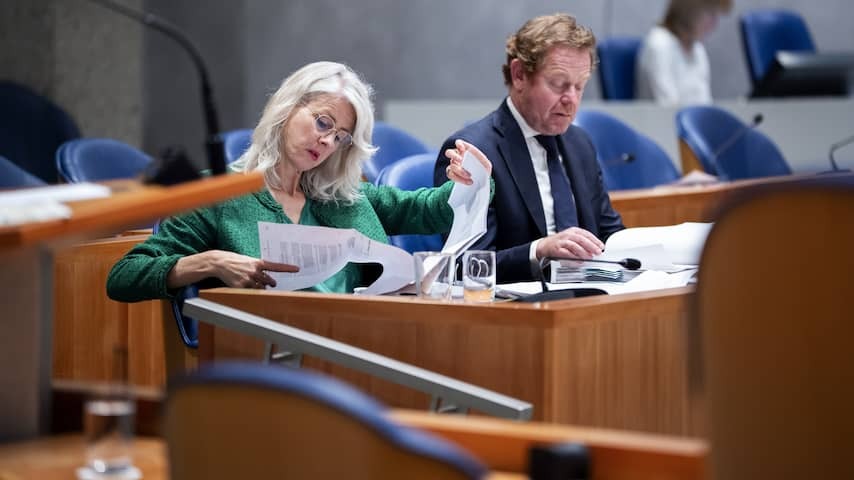
The parties in the House of Representatives all want to make significant changes to the laws of former asylum minister Marjolein Faber. Virtually no one is really satisfied with the plans yet. Even Faber’s party, PVV, cannot yet indicate whether it supports the laws.
“Every party in the House, from left to right, indicates: these laws need to be improved,” Don Ceder (CU) noted. According to Henri Bontenbal (CDA), the entire lead-up to the law has been “careless.” As far as he is concerned, this puts “excessive weight on the House of Representatives.”
The laws (the so-called asylum emergency measures law and the two-status system) will therefore be debated extensively on Thursday. It looks like it’s going to be night work. Because many parties had something to criticize about the laws, which are supposed to be part of “the strictest asylum policy ever” of the Schoof cabinet. Dozens of amendments have been submitted to refine the laws.
Adjustments are not unusual with such far-reaching legislative changes. But with the asylum laws, those proposed changes will be decisive.
The laws in brief:
Majority out of sight after PVV doubts
Because it is no longer certain that the laws will get a majority. Even before the fall of the cabinet, opposition parties pointed out that their support was also needed to get the laws through the Senate.
For this, the CDA was mainly looked at. That party also wants stricter asylum laws, but does not want to agree to the laws as they are now. Bontenbal argues, among other things, that the laws should only come into effect in June 2026. The new European asylum rules will also apply then. This prevents overlap.
Other right-wing opposition parties are well-disposed towards the laws, but cannot provide a majority. With left-wing opposition parties, the objections are so great that they do not want to agree at all.
But after the fall of the cabinet, the support of former coalition party PVV also became uncertain. Geert Wilders’ party withdrew its support from the cabinet because it demanded a stricter asylum policy. Were the laws of PVV minister Faber still strict enough now that the PVV is no longer bound to a coalition?
PVV Member of Parliament Marina Vondeling indicated on Thursday that it was still uncertain whether her party would vote in favor. This means that a majority for the law has also become uncertain in the House of Representatives.
Vondeling did indicate that she was not happy with all the wishes of her fellow members of parliament and warned that the PVV would not agree to a “weak imitation.”
Other parties also want to leave their mark
As far as Vondeling is concerned, the laws could actually be even stricter and, for example, the distribution law should also be withdrawn immediately. Also, as far as the PVV is concerned, asylum seekers must distance themselves from Sharia law.
The PVV is not the only former coalition party that wants to leave its mark. VVD, BBB and NSC also submitted amendments to make the laws stricter as far as they are concerned.
That is the danger of a debate on the subject on which a cabinet has fallen: with the elections in prospect, the parties would like to put themselves in the spotlight as parties that are now really going to solve the asylum problem.
For example, accusations were made against VVD Member of Parliament Queeny Rajkowski, who submitted amendments to make health insurance compulsory for family members arriving later and to give war refugees a permit for only one instead of two years. When the opposition parties asked about the feasibility, she indicated that the VVD’s starting point is to set extra requirements. If these prove unworkable, her party would like to hear that.
Law will still be rebuilt
The political interest in the asylum file was also evident when Faber had to be replaced. The ministerial post was divided into three parts; VVD, BBB and NSC each received a few files. Justice Minister David van Weel and Housing Minister Mona Keijzer are present at the asylum debate, because they have taken the asylum emergency measures law and the two-status system under their care, respectively.
With their predecessor Faber, there were many doubts about how the minister, who often clashed with the House, would get the laws through the House. That focus now seems to have shifted to the House itself.
Because the law will still be rebuilt based on all the amendments that get a majority in the House. And how the law turns out will be decisive for, among others, the PVV and the CDA. So whether the outgoing cabinet will realize the strictest asylum policy ever remains to be seen.